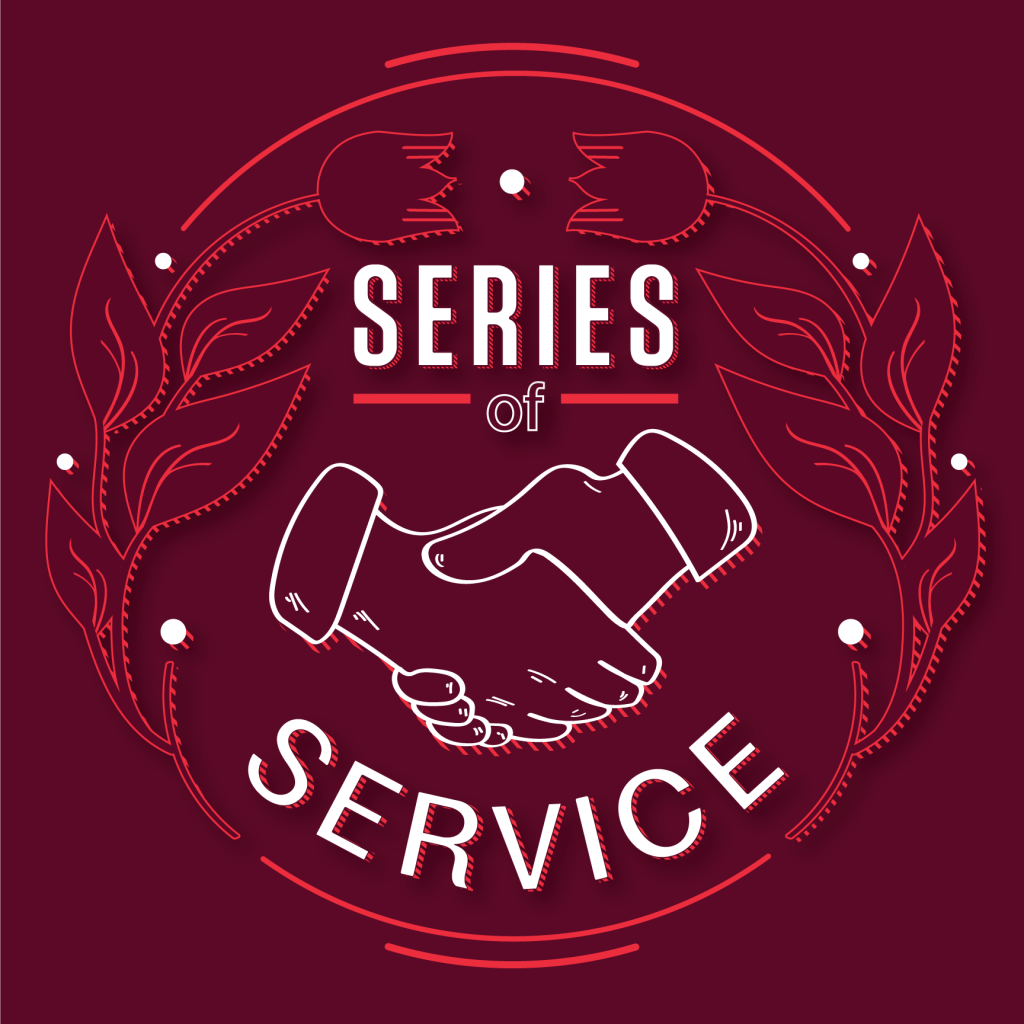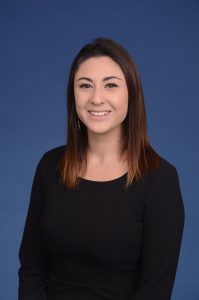Nikki Suarez ‘14: Liberal arts is the invaluable part of a college degree
This servant-hearted Aggie is on her way to becoming a U.S. ambassador and is passionate about being a voice for underrepresented students.

By Rachel Knight ‘18
Editor’s Note: The following is a Series of Service feature from the College of Liberal Arts.
The series highlights individuals who give generously of their time and resources as members of either the Liberal Arts Development Council or the Liberal Arts Advisory Council. Life-long learning and humanities research that matters at Texas A&M University would not be possible without this support.

Nikki Suarez ’14 is one of the youngest former students who selflessly serves the College of Liberal Arts and gives back to help support students.
Unlike most seventh-graders, Nikki Suarez ‘14 knew exactly what she wanted to be when she grew up. She planned to work hard and become a U.S. ambassador. After graduating with an international studies degree from the College of Liberal Arts at Texas A&M University and beginning her professional career, Suarez is on her way to achieving her goal.
Suarez chose the commerce track in her major, which allows students to take classes from both the College of Liberal Arts and Mays Business School. Suarez is currently a corporate partnerships manager at Genesys Works, a nonprofit that prepares students in underserved communities for career success. She says her liberal arts background plays a key role in her career success, but as a student she wondered if she’d be better served by a traditional business degree. Now, after successfully starting her career, she says it’s clear her liberal arts classes were an invaluable part of her college education.
We chatted on the phone with Suarez to hear more of her story. This interview, which has been condensed and edited for clarity, may awe and inspire you.
Tell me about your childhood.
I lived in Bolivia for the first 15 years of my life. My dad is Bolivian, and my mom is Mexican. My dad grew up in Bolivia. He took us back so that we could grow up close to my grandparents. My mom was a migrant worker, which is part of the reason I was so touched that you would feature me in something that has to do with service. A big reason why I serve people is often the students who come to Texas A&M have experiences very similar to my parents’ upbringing.
I went to an international school, so I was surrounded by different people and cultures. That’s where my interest in learning about international studies really peaked. I enjoyed learning about people who were different from myself.
Why did your parents decide to come to the US?
The government in Bolivia is pretty volatile. My dad was a contract worker for the U.S. government, and at that point in time they were starting to get rid of all U.S. Embassy-related jobs. The Bolivian government kind of said they were cutting ties with the U.S. government, so we moved here. I graduated from high school in Austin.
How did you decide to study at Texas A&M University?
Texas A&M was far enough away from home that I could experience college for myself, yet still close enough that I could see my family. I received a really nice financial aid package, because Texas A&M is really good at recruiting students like me to create a more diverse student body. I was really thankful for that. It made my decision a little easier.
Why did you choose international studies as your major?
Originally, I wanted to find something that would allow me to continue to learn about different cultures. I was looking through the degree plans at Texas A&M, and at that point international studies was fairly new. I thought it was a good opportunity to really build the major that I wanted. I signed up for that and then decided to pursue the commerce track and learn more about international business.
It was exactly what I wanted. I wouldn’t have been able to make a better major. I used to toy with the idea of, “What if this was just a business degree? Would it be better?” Now in my career I realize that the liberal arts part of my degree was the invaluable part.
What makes the liberal arts part so invaluable?
My liberal arts degree taught me how to work with different cultures. It’s the small things, too. For example, I’m meeting with someone who works for Kinder Morgan, and they happen to be from Spain. We can discuss things I learned in my Spanish photography class, and now all of a sudden we’re building a repertoire. My job is all about relationship-building. The liberal arts part of my degree helps me with that part of my job.
What was your favorite class at Texas A&M?
Dr. Greenwold’s course. He broke down the class of about 120 students into groups of ten. We each had to make our own country. Really there were no rules, which was great. Exams, for example, could be taken however your country decided to take them. You could choose to collaborate or you could choose to keep all the information to yourself.
It was so great to learn about group dynamics in that class, and it was so indicative of how the real world works. Sometimes when we’re in college we just study, take tests, and then forget all the information. What I learned in Dr. Greenwold’s class stuck with me, because I had a team relying on me.
Who were your favorite professors and mentors at Texas A&M University?
Dr. Greenwold was for sure one of my favorite professors. He treated us like we were adults. That was unusual to me, but something I really appreciated. He was also very human and approachable. If you had an issue, you could go to him. He would give you genuine advice. He cared about each and every one of us. I don’t know how he pulled that off in a class of 120 students. He was quite exceptional.
My advisor through the College of Liberal Arts was actually the most influential person during my time at Texas A&M. Her name was Laura Stratta. Laura changed the trajectory of my life when she helped me get my internship with the U.S. government. She’s the one who encouraged me to pursue a minor in Spanish. I already spoke Spanish, but she encouraged me to have the schooling to back it. That has been incredibly helpful. She also encouraged me to take classes that were out of my comfort zone. That helped my career, too, because it stimulated in me a drive and hunger for learning.
What is your favorite Texas A&M tradition?
Fish Camp is one of my favorites. My dad had signed me up for Fish Camp under the impression that it was a fishing camp. It turned out it was not, but it was a great introduction to what the university is. You get to start college with friends, you know people on campus, and then that family just grows and builds.
I am still friends with people who were part of my Fish Camp discussion group. You come together as scared, incoming freshmen, and people in tutus make it really easy to bond and connect. It helped make my freshman year a lot easier. I love that we do that.
Tell me about what you do at Genesys Works.
At Genesys Works, we place students from underserved communities in corporate internships. On a day-to-day basis, I get to work with corporations like Center Point, Kinder Morgan, and big oil and gas companies. I meet with corporations, but I still get to represent an underserved community which is really impactful for me.
I get to control the narrative of what’s being said about these underserved populations. I come from those populations, so it’s delivering my own message which is nice. What we run into a lot with nonprofits, especially those who are serving underserved groups, is people trying to tell their story in a way that’s not empowering but more of a charity case.
I get to tell the stories of these students who come from a lot of adverse backgrounds in a more empowering way. Instead of going to corporations and saying they need these opportunities because of their socio-economic background, it’s you should help them, here’s why, and this is the impact they can have on your company.
Why are liberal arts degrees important for successful people like you?
Liberal arts is often stigmatized for being a last-resort degree plan. In reality it’s the most holistic plan you can go into. Rather than being pigeonholed into one career for the rest of my life, I can change careers at any moment thanks to the foundation I have from my liberal arts degree.
What drives your personal passion for giving back to the College of Liberal Arts?
If it weren’t for my degree in liberal arts at Texas A&M, I wouldn’t be anywhere near where I am now. Being able to continue the support system that we provide students is part of why I give back. I want to ensure other students like myself will receive the same services. I donate financially and also give my time so that we can continue to serve students who are similar to my background.
What books are on your nightstand right now?
I am currently re-reading The Bell Jar by Sylvia Plath. That’s just my fun read. It was my favorite book in high school, so I wanted to go back and read it now as an adult.
I’m kind of late to the game on this one, but I’m also reading Becoming by Michelle Obama. I highly recommend it. She’s so funny!
What do you want to be your legacy at Texas A&M University?
I hope to be remembered as someone who was inspiring to younger students currently going through the liberal arts program, and particularly young Latina women. I hope that I can be seen as a voice for underrepresented students in the student body. As Texas A&M is changing, I want to be part of that change and bring a perspective that the university maybe hasn’t focused on in the past.
I am really thankful that we have Liberal Arts Advisory Council, because it gives younger people a voice. It also gives very diverse people a voice. If I can support those students and be a voice for them, then I’ve done what I needed to do.
